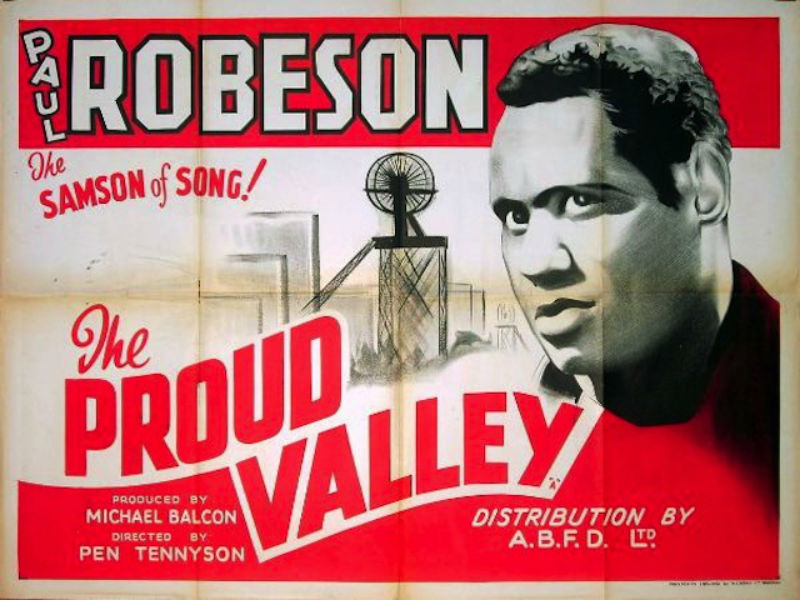




Never has a film title been as misleading as The Proud Valley. You’d think this a nationalistic film movie populated with jingoistic chants, subliminal messages of racial superiority, the perfect place for patriotism its ugly face. Well, quite the opposite. This is not a film about national pride, but instead an extremely audacious statement against xenophobia, racial prejudice, as well as denunciation of the outrageous working conditions in the Welsh mines. It was once described as “possibly the most Marxist British film ever”. And it was made in 1940, at the outbreak of the War.
The film takes place in impoverished Rhondda Valley of Wales, where miners work in extremely dangerous and insalubrious conditions. Tragic deaths are a routinely recurrence. A Black American immigrant called David Goliath (Paul Robeson) suddenly joins the closely-knit community, and – unsurprisingly – at first he struggles to integrate. He gradually begins to win the respect of the very musical society through his singing. Robeson is a renowned bass singer and political activist, who was blacklisted in very his very homeland during the era of McCarthyism due to his working-class activism and socialist inclinations.

Goliath is the ultimate foreigner. He literally stands from out from the crowd: not only he’s black, but he’s much taller and bigger than everyone else. Plus he has a strident voice and an enormous heart. He eventually takes up a job in the mines, where he’s always happy to help a worker in need. His heroic altruism knows no bounds, with a film critic at the time describing the character as a “big black Polyanna“. He is indeed a caricature of good, which makes the film borderline didactic as to why we should accept foreigners. The tragic ending of the movie is both inevitable and predictable. Goliath will make the boldest sacrifice in the name of the Welsh people.
Despite the trite formulas and one-dimensional lead, The Proud Valley is a a very revelant achievement in many ways. Firstly, the music and the photography are outstanding. Robeson sings twice, and a performance for a funeral inside a medieval is majestic and impressive. Secondly, such working-class realism (you will see workers literally at the coalface) was virtually non-existent. The first working class doc ever Housing Problems (Edgar Anstey/ Arthur Elton, 1935; which was just 16 minutes long) was never widely seen, and Ken Loach was just three years old back then, and so somebody else had to speak up for working people! Thirdly, and The Proud Valley makes a diversity statement long before the very concept of term was concocted in the 1960s.
The Proud Valley has now been fully restored with deliciously crisp and sharp black and white images. It’s available of DVD, Blu-ray and EST. The film is part of the Vintage Classic Collection by Studiocanal – just click here for more information. Below is the film trailer (not restored):











